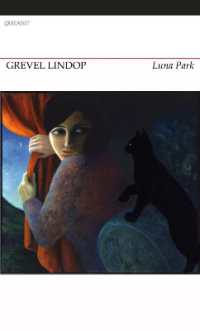- ホーム
- > 洋書
- > 英文書
- > Biography / Autobiography
Full Description
Born in Paris in 1905 to a German-Jewish family from Frankfurt and dying a century later in Montreal, Raymond Klibansky lived a life indelibly coloured by the history of the twentieth century. His thought shaped and was shaped by intellectual currents both European and American, and his scholarly work entailed an intellectual reckoning with tradition that was unique in its scope and ambition, long before talk of academic interdisciplinarity.
Klibansky, a student of Karl Jaspers and Ernst Cassirer, was educated in the liberal milieu of the Weimar Republic. Forced to emigrate from Germany in 1933, Klibansky spent the war years in London, where he participated in the British war effort. Working in the tradition established by Aby Warburg and the Warburg Library, he completed with Erwin Panofsky and Fritz Saxl the German text of Saturn and Melancholy. The book's cast metal type was reclaimed for the war effort before it could be printed, but it was eventually published in English in 1964 and has deeply influenced understandings of the interrelations between humanities disciplines ever since. After the war Klibansky came to McGill University, where he enjoyed a brilliant career as a scholar of platonic studies and the history of ideas, mainly in the works of Locke and Hume. Over twelve chapters, each devoted to questions that were dear to Klibansky during his long life, Georges Leroux presents dialogues with his mentor selected from decades of conversation, exploring themes including philosophical traditions, melancholy, tolerance, peace, and the role of philosophy in international relations. Scholarship, interlinked with the events of a turbulent century, is at the centre of these fascinating conversations between student and teacher.
A richly illustrated autobiography through dialogue, Raymond Klibanskyis a portrait of a heroic figure in twentieth-century philosophy, a model for a younger generation who can find in his scholarship an admirable example of virtue in the service of peace.








